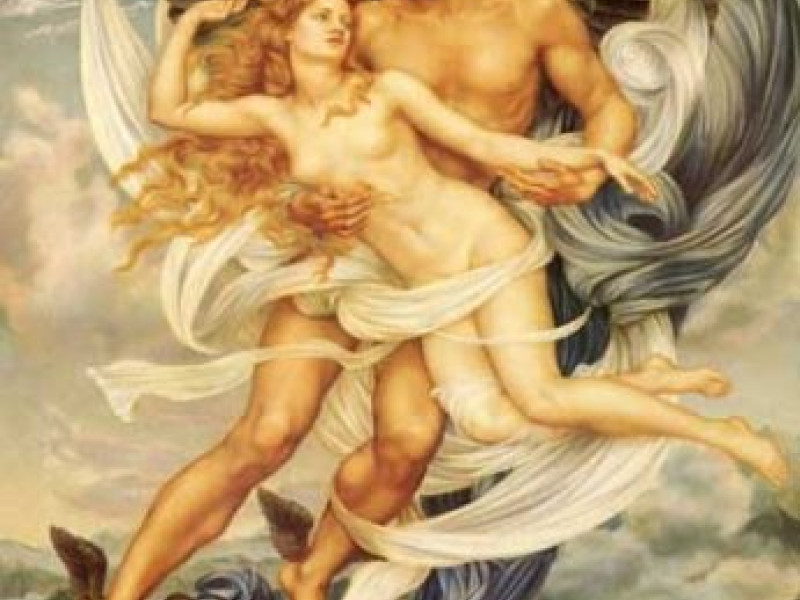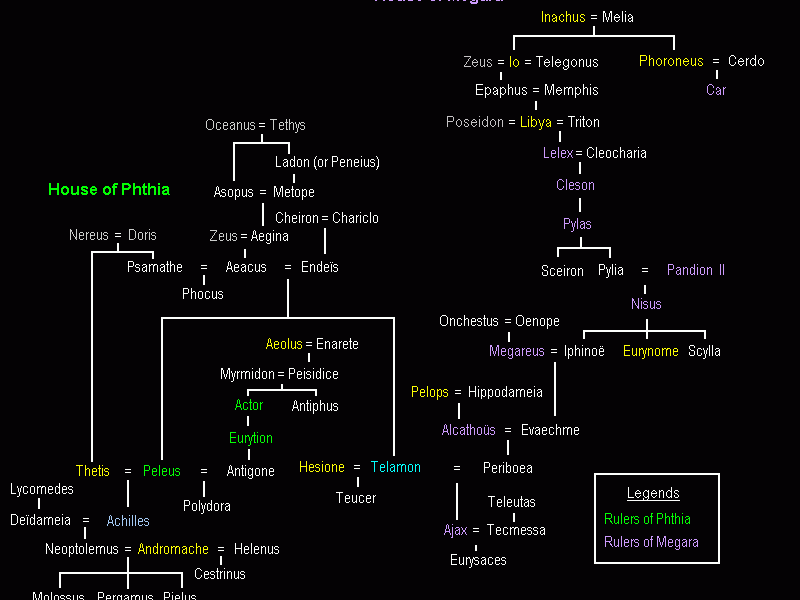Cecrops and Pandion II
Cecrops II
Cecrops (Cecrops II; Κέρκωψ) was the eldest son of Erechtheus and Praxithea. When Poseidon killed his father, Cecrops and his brothers, Pandorus and Metion, asked their brother-in-law Xuthus to judge who was best suited to rule Athens as king. Xuthus chose Cecrops. Cecrops' rivals banished Xuthus from Athens. Not much is known about the second Cecrops except that he married Metiadusa, the daughter of Eupalamus. Cecrops was the father of the second Pandion (Pandion II).
It is believed that Cecrops II was a late invention, to fill the gap over the confusion of the early generations. Cecrops II should not be confused with Cecrops I; Cecrops II was completely human, whereas as Cecrops I had the head and upper body of a man, but the lower body of a reptile.
Pandion II
Pandion (Pandion II; Πανδίων) was the son of Cecrops II and Metiadusa, the daughter of Eupalamus. Pandion succeeded his father at his death, but the sons of his uncle Metion rebelled against his rule. Pandion was driven into exile, while they set their father (Metion) as king of Athens.
Pandion fled to Megara, where he married Pylia, daughter of King Pylas. Later, Pylas went into voluntary exile to Messenia, because he had killed his uncle, Bias. Pylas set his son-in-law as king of Megara. Pylia bore four sons for him, Nisus, Pallas, Lycus and Aegeus. However, most believed that Aegeus was the son of Scyrius, but Pandion had adopted Aegeus.
Pandion left the kingdom to his eldest son Nisus, as king of Megara. His other sons returned to Athens and drove out the sons of Metion. See Aegeus and Theseus.
Like his father Cecrops II, Pandion was possibly a late invention to fill in the gap over confusion about the early generations. Pandion II should not be confused with his great grandfather, Pandion I.
Related Information
Name
Cecrops, Κέρκωψ.
Pandion, Πανδίων.
Sources
The Library was written by Apollodorus.
Description of Greece was written by Pausanias.
Related Articles
Erechtheus, Aegeus, Lycus.
Genealogy: House of Athens.
By Jimmy Joe



